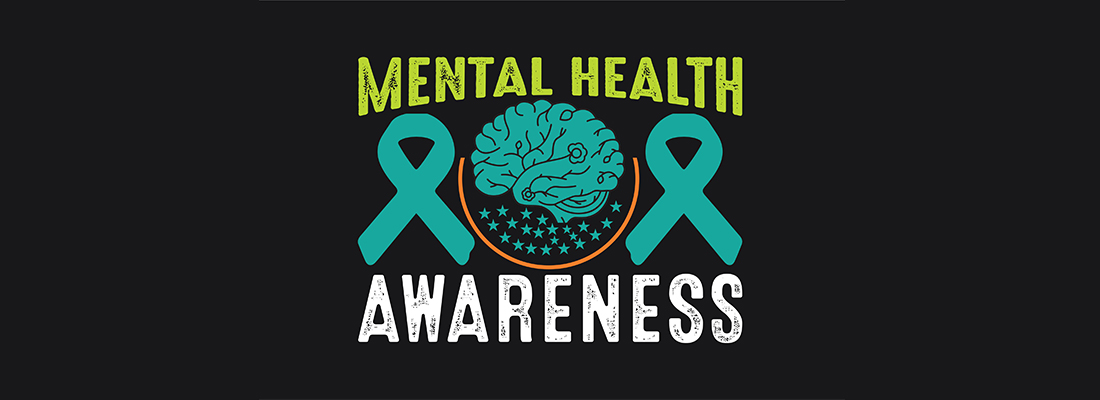Key Takeaways
- Mental Illness Awareness Week 2025 promotes education, empathy, and early intervention for mental health conditions.
- The initiative highlights the importance of accessible mental health resources, therapy, and community support.
- Understanding signs, symptoms, and treatment options helps reduce stigma and encourages timely professional help.
- Small lifestyle changes, mindfulness, and open dialogue can significantly improve mental well-being.
- Together, we can foster an environment where seeking help for mental illness is seen as a strength, not a weakness.
Introduction
Every year, Mental Illness Awareness Week serves as a crucial reminder that mental health is just as vital as physical health. In 2025, this week will be observed from October 5 to October 11, focusing on spreading awareness, empathy, and support for individuals battling mental health challenges.
Mental Illness Awareness Week emphasizes that understanding and addressing mental health is not merely a matter of compassion it’s a public health necessity. Millions of people worldwide live with depression, anxiety, bipolar disorder, and other mental health conditions, often without adequate treatment or understanding from society.
This year’s theme aims to inspire people to “Recognize, Respond, and Recover,” emphasizing the importance of community involvement, early detection, and comprehensive care.
Also Read: World Mental Health Day 2025: Spreading Awareness and Hope
Why Mental Illness Awareness Matters
Mental illnesses affect one in five adults in the U.S., according to the National Institute of Mental Health (NIMH). Despite their prevalence, stigma, misinformation, and fear often prevent individuals from seeking help.
During mental illness awareness week 2025, healthcare professionals, organizations, and advocacy groups will unite to share resources and stories that shed light on the realities of living with mental illness.
The week also seeks to dismantle myths like the idea that mental illness is a sign of weakness or that it can simply be “snapped out of.” These misconceptions hinder early intervention and contribute to prolonged suffering.
By recognizing national mental illness awareness week 2025, communities can foster empathy and inclusivity two essential components for healing and prevention.
A Detailed Guide to Mental Illness Awareness Week
Understanding the Mission
The primary goal of mental illness awareness week is to increase understanding and acceptance of people with mental health conditions. The initiative focuses on:
- Promoting early detection and treatment.
- Providing educational resources for families and caregivers.
- Encouraging open conversations about emotional well-being.
It’s also a call to policymakers and healthcare providers to strengthen mental health infrastructure, making support more accessible and affordable.
Signs and Symptoms to Watch For

Recognizing the early signs of mental illness is critical for timely intervention. Common indicators include:
- Persistent sadness or hopelessness
- Withdrawal from social activities
- Extreme mood changes
- Difficulty concentrating or sleeping
- Feelings of guilt, worthlessness, or irritability
By learning these signs during mental illness awareness week 2025, individuals can better support themselves and others in seeking help early.
The Role of Therapy and Counseling
Therapy remains one of the most effective tools for managing mental health. Cognitive-behavioral therapy (CBT), dialectical behavior therapy (DBT), and mindfulness-based therapies have proven beneficial for anxiety, depression, and PTSD.
During national mental illness awareness week 2025, experts will spotlight various therapeutic methods and encourage individuals to find the right fit for their unique needs.
Additionally, mental health apps, virtual therapy platforms, and peer-support communities have made therapy more accessible than ever before, especially for those hesitant to seek in-person care.
The Power of Lifestyle and Self-Care
Simple, consistent lifestyle habits can complement professional treatment and promote long-term emotional stability. Consider these wellness strategies:
- Exercise regularly: Physical activity boosts endorphins and reduces stress.
- Prioritize sleep: Quality sleep supports brain function and emotional regulation.
- Eat mindfully: Nutrient-rich foods promote mood balance and cognitive health.
- Practice mindfulness: Meditation and breathing exercises can reduce anxiety.
- Connect socially: Building strong relationships fosters belonging and resilience.
During mental illness awareness week 2025, organizations encourage individuals to adopt these daily habits as part of a preventive mental health routine.
Workplace Mental Health Awareness
The workplace plays a pivotal role in supporting emotional well-being. Many organizations use national mental illness awareness week to host seminars, mental health breaks, and employee assistance programs.
Employers are encouraged to cultivate supportive environments that value mental health as much as productivity. Open communication, flexible work schedules, and mental health benefits can greatly improve employee satisfaction and reduce burnout.
Advocacy and Community Support
One of the highlights of mental illness awareness week is the community-driven advocacy events. From mental health walks and webinars to storytelling sessions, these activities amplify voices that often go unheard.
Advocacy helps individuals realize they are not alone and that recovery is achievable with the right support. Many mental health organizations also use this week to push for better healthcare coverage and destigmatization policies.
Conclusion: A Call to Action for Mental Health
As mental illness awareness week 2025 approaches, let it serve as a reminder that mental health is a shared responsibility. Whether you are a healthcare professional, an educator, a parent, or a friend your awareness and compassion can make a difference.
Together, we can build communities where mental health conversations are open, support systems are strong, and stigma is replaced with understanding.
This national mental illness awareness week 2025, let’s take a stand for empathy, education, and empowerment because mental health matters for everyone, every day.




